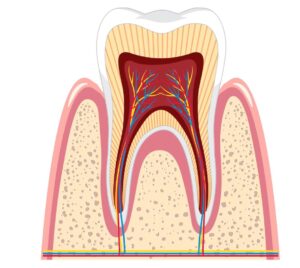Root Canal Treatments

Root canal treatment is a dental procedure that is performed to save a severely damaged or infected tooth from extraction. This treatment is necessary when the pulp, or the soft tissue inside the tooth, becomes inflamed or infected due to decay, injury, or other causes.
During a root canal procedure, your dentist or endodontist will remove the infected or damaged pulp from inside the tooth. They will then clean and shape the root canals, which are the small, thin channels that run from the pulp to the tip of the tooth’s root. Once the canals are clean and shaped, your dentist will fill them with a rubber-like material called gutta-percha to seal them and prevent future infection.
After the root canal treatment is complete, your dentist may recommend a crown or other restoration to protect the tooth and restore its function and appearance. With proper care and maintenance, a tooth that has undergone root canal treatment can last for many years and provide the same function as a healthy natural tooth.
Some common signs and symptoms that may indicate the need for a root canal treatment include severe toothache, sensitivity to hot or cold temperatures, swelling or tenderness in the gums, or a persistent pimple or bump on the gums. If you experience any of these symptoms, it’s important to see your dentist as soon as possible to determine if root canal treatment is necessary.
Root canal treatment has a reputation for being a painful procedure, but with modern techniques and anesthesia, most patients report little to no pain during the procedure. In fact, root canal treatment can often relieve the pain caused by an infected or damaged tooth, allowing you to return to normal activities without discomfort.
